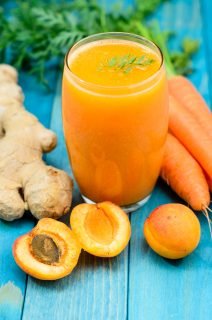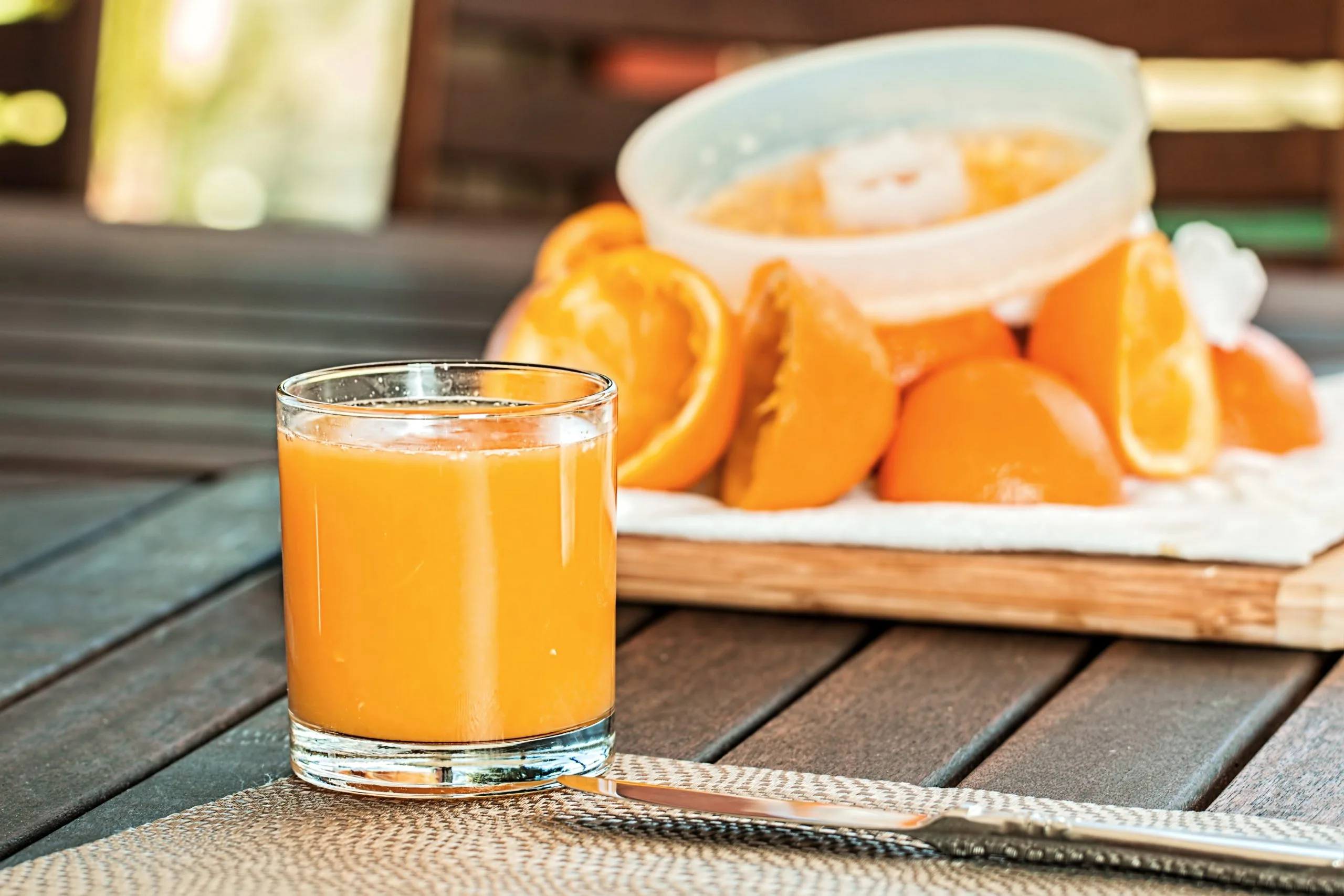In general, we all tend to perceive fruit juice as being very good for us. Fruit is good for us, so the juice that comes from it must be just as healthy right? Well, not necessarily. Many studies indicate that often, fruit juice contains just as much sugar as the sugary sodas we are told to avoid at all costs. But is it as bad for us as sugary soda, or could it be something which we should be using to boost our health?
 What is fruit juice?
What is fruit juice?
The most important thing is to find out what it is that you’re actually drinking.
Some people tend to confuse fruit juice and fruit drinks. This is one of the main problems when it comes to drinking fruit juice. Fruit juice is a completely different thing from a ‘fruit drink’. According to the Healthy Food Guide, a fruit juice must contain undiluted fruit juice and is allowed to contain up to 4% added sugar. A fruit drink, on the other hand, must contain a minimum of 5% fruit juice. They can contain more than that.
There is also confusion when it comes to labeling. Many juices are made from concentrated fruit juice. The juice is concentrated by removing some of the water which makes it easier and cheaper to transport. Once it has been transported, the juice. It is then reconstituted by adding water back in. Many of these juices will also have vitamins and nutrients added back in during the reconstitution process. This is because any water-soluble vitamins and nutrients are lost during the concentration process. To try and help you tell which is which when you’re in the supermarket:
Juices made from concentrate will be labeled
- Made from concentrate
- Reconstituted
Juices not made from concentrate will be labeled
- Fresh fruit juice
- Not from concentrate
- Pure (which means that it contains no additives)
Possible benefits of fruit juice

Photo by Alexander Mils from Pexels
The benefits or lack thereof really depend on what type of juice it is that you’re drinking. If you are using juice as a way to get your required nutrients, it’s imperative that you understand what is good for you and what isn’t. The best possible choice seems to be freshly pressed, 100% pure fruit or vegetable juice. Ideally, you don’t want any additives or extra sugar. The only sugar should be the natural fructose coming from the fruit itself. Cold press juicers can be more efficient in retaining vitamins and nutrients, versus masticating juicers, which apply heat in the grinding and juicing processes
The fresh kind is packed full of “vitamins, minerals, and beneficial compounds”. Many people think that fruit juice contains fewer nutrients than fresh fruit, but this actually doesn’t seem to be the case. In fact, research shows that “1/2 cup (120 ml) of fruit juice is just as rich in most vitamins and minerals, including iron, potassium, magnesium, and B vitamins, as the same quantity of fresh fruit”. The only issue is that nutrients do degrade over time so the fresher the juice, the more full of nutrients, and the better for you it is.
Another benefit of fruit and vegetable juice is that it contains other beneficial compounds including “carotenoids, polyphenols, and flavonoids”. All of these are plant compounds that are hugely beneficial when it comes to neutralizing free radicals and reducing your overall risk of disease. Many types of fruit and vegetable juices are linked to a variety of health benefits. This includes “improved immunity and brain function, lower inflammation and the lowering of blood pressure, and LDL (bad cholesterol) levels”. These benefits only apply up to a certain point. You shouldn’t consume more than 5 ounces or 150 ml per day.
Possible disadvantages of fruit juice
One of the main misunderstandings when it comes to fruit juice is that it is bad for you because it is high in fructose. However, fructose itself, whilst it  shouldn’t be eaten in extremely high volumes, is a natural sugar. Many people confuse natural fructose with high-fructose corn syrup, which is a sweetening agent made from processed corn starch. High-fructose corn syrup is directly linked to “insulin resistance, obesity, type 2 diabetes, and high blood pressure”.
shouldn’t be eaten in extremely high volumes, is a natural sugar. Many people confuse natural fructose with high-fructose corn syrup, which is a sweetening agent made from processed corn starch. High-fructose corn syrup is directly linked to “insulin resistance, obesity, type 2 diabetes, and high blood pressure”.
Pure fruit juice however isn’t the same, mainly because its sweetness comes from natural fructose. It seems to have more health benefits than risks. One of the main issues when it comes to fruit juice is the lack of fiber. Unlike sugary soft drinks which contain no nutritional value at all, it does have nutritional value. However, with the juicing process, even with pure fruit juice, fiber is lost. The issue here is that fiber is what ‘builds bulk’ and thus, helps us to feel full. If there is none of that fiber, you can end up consuming more fructose and more calories than you should. This can lead to weight gain and could potentially even affect blood sugar levels.
Another issue with it is that it can interact very negatively with certain medications. Of all the juices, grapefruit juice is the worst when it comes to interacting negatively with pharmaceutical drugs. According to Very Well Fit, it interacts negatively with more than 50 drugs, some of which are used to treat HIV. The reason behind this is that grapefruit itself contains a compound called furanocoumarins. This compound inhibits an enzyme called CYP3A4 which is what is used in the body to break down certain medications. When the metabolism of these drugs doesn’t happen, they can rise to toxic levels within the body. Other citrus fruits can also be problematic if you struggle with gastritis, peptic ulcers, or other stomach problems.
So, is it bad for you?
Overall, as long as it’s the freshly pressed stuff and not the concentrate, it’s a pretty healthy option. You do need to be aware of how much of it you are drinking and make sure that you don’t drink more than 150 ml per day. If you like a big glass of fruit juice, it’s best to pour 150ml (5oz) and then add water and ice to the balance of the glass. If you struggle with gastric issues and acid reflux, it’s best to stay away from the citrus ones. It’s also best to check with your doctor whether grapefruit juice is safe to drink in combination with your medication. If you struggle to get your daily dose of fruit and veg, it could be a brilliant thing to integrate into your diet, especially if it’s cold-pressed as this prevents the loss of nutrients.
References
https://www.healthline.com/nutrition/fruit-juice-vs-soda#sugar-content
https://www.healthyfood.com/advice/fruit-juice-or-fruit-drink/
https://www.verywellfit.com/should-you-avoid-drinking-fruit-juice-2506678



![women [longevity live]](https://longevitylive.com/wp-content/uploads/2020/01/photo-of-women-walking-down-the-street-1116984-100x100.jpg)










